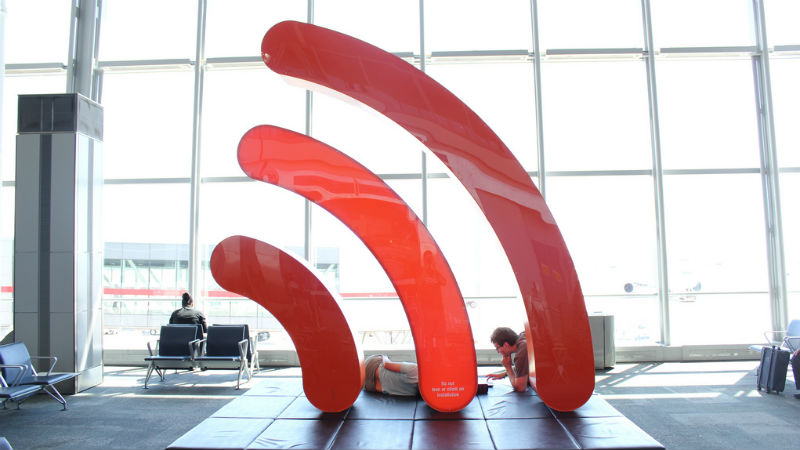5G will require mobile operators to rethink the role of Wi-Fi
Operators may need to de-prioritise Wi-Fi in 5G era.

Sign up for breaking news, reviews, opinion, top tech deals, and more.
You are now subscribed
Your newsletter sign-up was successful
Earlier this week, OpenSignal released a report that challenged a piece of conventional wisdom within the mobile industry: Wi-Fi is always better option than cellular
Ever since the launch of the first iPhones and Android smartphones more than a decade ago, it has been an industry assumption that Wi-Fi offers superior speeds and capacity to a 3G or 4G network and should therefore be the default option for connecting a mobile device when available.
Back then it made sense. In 2007, mobile data was relatively expensive, coverage was inferior, and speeds slower. Mobile operating systems were designed to prioritised fixed connections and many operators bundled Wi-Fi access into their mobile price plans in order to offload as much traffic as possible.
Wi-Fi v Cellular
The rollout of fibre-powered superfast broadband has ensured that Wi-Fi has maintained its advantage despite advances in mobile technology. Public Wi-Fi networks have grown in size and popularity while Wi-Fi remains the most popular choice at home, where most smartphone use takes place.
But the rapid pace of innovation in 4G and more generous data allowances has eroded this advantage to the point that it doesn’t always hold true in some countries – especially more developed, Western nations.
OpenSignal suggests that cellular networks are faster than Wi-Fi in as many as 33 countries (41 per cent of all nations investigated. This figure increases to 50 (63 per cent) when only 4G networks are assessed.
The amount of time spent on Wi-Fi compared to mobile cannot be interpreted as a vote of confidence for the former simply because wireless is the default option for handsets.
Sign up to the TechRadar Pro newsletter to get all the top news, opinion, features and guidance your business needs to succeed!
In some nations the gains are significant - Australian mobile networks are on average 13Mbps more rapid than Wi-Fi – and there are some anomalies. Hong Kong, Singapore and the USA are three countries where Wi-Fi is significantly better than mobile, while the UK has an average Wi-Fi speed of 30.8Mbps whereas the average mobile rate is 19Mbps.

Operator impact
But there is food for thought for mobile operators who have long viewed Wi-Fi as a way to provide access in areas with poor mobile signal. Innovations such as Voice-over-Wi-Fi (VoWi-Fi) are designed to mitigate poor reception in remote locations or indoors, while public Wi-Fi is seen as a way to boost capacity in crowded areas.
Although not designed specifically for smartphones, BT and EE’s vision of converged networks includes Wi-Fi, alongside fibre and 5G, as one of the key pillars.
OpenSignal’s report suggests this will be less feasible as consumers and businesses become more accustomed to the faster speeds afforded by mobile and start to view Wi-Fi as a downgrade.
These disparities will widen with the advent of 5G, which could offer mobile speeds of between 1 and 3Gbps, and the fact that mobile innovation is faster and cheaper to deploy. This contrasts with Wi-Fi which is largely dependent on fixed line innovation that can be costly and time-consuming.
5G will offer capacity gains, something which will ease pressure in busy areas and reduce the need to offload to Wi-Fi, but operators will need to use low-range spectrum that can penetrate buildings if customers are not to receive an inferior experience.
Mobile device manufacturers and operating system developers may need to add options that allow users to choose their default connection method based on speed or quality of network rather than having the decision made for them based on technology. It might be that devices connect to multiple networks at the same time.
That’s not to say Wi-Fi will become relevant. It is still cheaper, supports a wider range of devices and will be crucial in crowded locations with high data demand.
The conclusion from OpenSignal is that Wi-Fi’s role in the mobile ecosystem will shift to a supporting role rather than a primary connection method.
- Here are the best mobile phone deals for November 2018
Steve McCaskill is TechRadar Pro's resident mobile industry expert, covering all aspects of the UK and global news, from operators to service providers and everything in between. He is a former editor of Silicon UK and journalist with over a decade's experience in the technology industry, writing about technology, in particular, telecoms, mobile and sports tech, sports, video games and media.